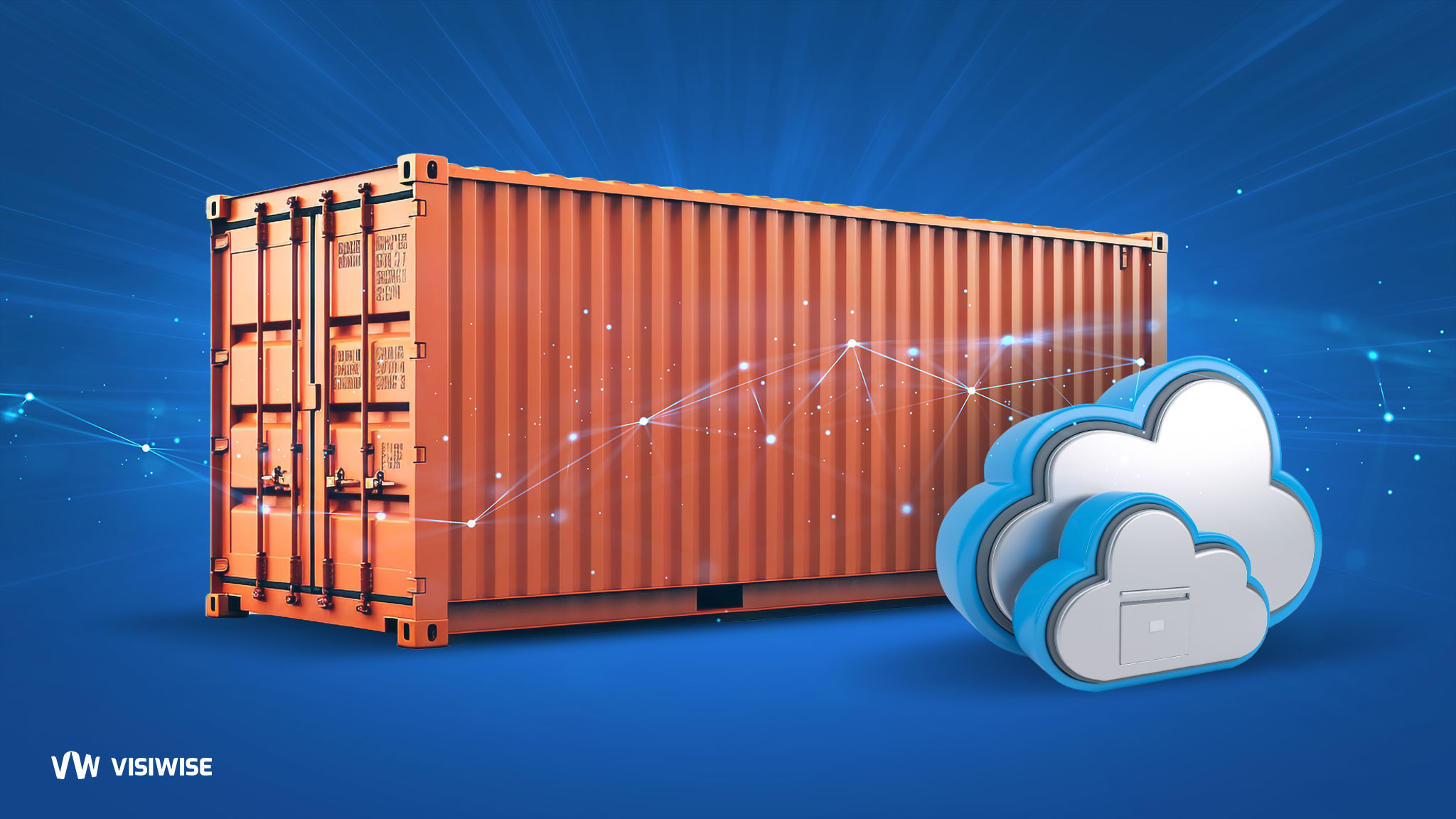The advent of cloud computing technology has cultivated a globally interconnected digital landscape, offering significant prospects for the logistics sector. Cloud computing entails the delivery of computing services over the internet, providing on-demand access to resources. In essence, it involves harnessing computer capabilities that are not physically situated on one’s premises. Instead, users tap into a networked infrastructure located elsewhere in the world, accessible via the internet. This cloud infrastructure encompasses servers, storage, databases, networking, software, analytics, and intelligence to deliver its array of services.
As per Data Bridge Market Research, the cloud supply chain management market is forecasted to reach a valuation of USD 71.93 billion by 2030, exhibiting a compound annual growth rate (CAGR) of 16.10% during the projection period. In 2022, the market size was estimated at USD 21.79 billion. Organizations embracing cloud-based logistics typically rely on software applications like Warehouse Management Systems (WMS) accessed through Software as a Service (SaaS) models.
Cloud Computing in Supply Chain Management
Given the vital role of the supply chain in business operations, continuous improvement efforts are continuously pursued. One prominent method employed to enhance the supply chain system is cloud computing, which shares similarities with advancements in the field of education. Cloud computing contributes to supply chain improvement by leveraging cloud infrastructures, platforms, applications, and software solutions.
Cloud technology optimizes several supply chain activities, as outlined below:
Forecasting and Planning: Accurate supply and demand forecasting is critical for effective supply chain management. Cloud technology enables seamless data collection and centralization from customers, retailers, manufacturers, and wholesalers. These data can be leveraged by artificial intelligence systems to generate reliable supply and demand predictions.
Logistics: Efficient logistics management is also vital to ensure smooth supply chain operations and minimize delays. Cloud computing enhances logistics management by providing a cloud platform for developing product tracking applications, monitoring logistic operations, enabling automatic inventory management, and optimizing transport routes.
Sourcing and Procurement: Cloud services serve as a centralized database, housing information on available supplies, low-stock alerts, vendor details, and more. Moreover, cloud services facilitate automated ordering of recurring materials, saving time and reducing delays in procurement processes.
Advantages of Implementing Cloud Logistics
Cloud computing entails the centralized storage of data, information, and web services, all processed by servers connected to the Internet. This approach allows for the acquisition and installation of digital programs either internally or through a service provider who hosts them on their own servers.
Organizations that embrace cloud logistics experience the following advantages:
Real-time Stock Visibility: Cloud-based inventory management enables real-time updates of stock levels within your facility, providing your business with constant visibility of product availability.
Flexibility: Software-as-a-Service (SaaS) solutions are scalable and adaptable to accommodate varying workloads, product seasonality, and the complexity of your warehouse operations.
Lower Initial Investment: Cloud logistics requires a smaller initial investment due to its flexible deployment options. You only pay for the necessary number of licenses on a periodic basis. For example, Cloud Service Providers (CSP) allow businesses to utilize a Pay-as-you-go model for their payments, which means you just pay as much as you use.
Easy Maintenance: With cloud logistics, your IT staff is relieved of WMS software maintenance tasks, allowing them to focus on other critical priorities.
Improved Security: Cloud technology simplifies data management and ensures secure communication processes. All data are stored on servers that adhere to strict security standards, such as ISO 27017.
Automatic Updates: Software updates are applied automatically in cloud logistics, ensuring uninterrupted 24/7 operational continuity.
Multi-location Warehouse Management: Cloud logistics facilitates the management of stock and operations across multiple locations. You can efficiently oversee and control various facilities from anywhere with a reliable internet connection.
The Services and Solutions of Cloud Computing for Logistics
Cloud computing services and solutions have made a significant impact on the logistics sector, delivering cost and time reductions while enhancing transparency and accuracy. The utilization of cloud computing enables efficient and effective management and monitoring of the entire supply chain within the logistics industry.
Cloud computing services and solutions have revolutionized the logistics sector, offering significant benefits across three main categories: transportation management, inventory management, and warehouse management.
Transportation Management System (TMS): is a cloud-based application that effectively handles goods transportation. It provides real-time visibility into the transportation network, enabling optimized route planning. Additionally, it incorporates relevant data such as traffic and weather conditions, enhancing transportation efficiency.
Inventory Management System (IMS): is a cloud-based application that efficiently manages goods inventory. It offers real-time insights into stock levels, expiration dates, and other pertinent information. It also sends alerts for low stock levels or approaching expiration dates, ensuring proactive inventory control.
Warehouse Management System (WMS): is a cloud-based application that streamlines warehouse operations. It provides valuable information regarding stock levels, goods locations, and other critical details. Furthermore, it aids in optimizing warehouse space and labor management.
The aforementioned services and solutions have greatly benefited the logistics sector by reducing costs and saving time. They have significantly enhanced transparency and accuracy in logistics operations, leading to improved overall efficiency.
Cloud Computing in Real-Time Visibility Platform
Cloud computing plays a pivotal role in real-time visibility platforms, offering dynamic and instantaneous access to critical data across the logistics chain. By leveraging cloud infrastructure, these platforms provide enhanced transparency and efficiency in monitoring and managing logistics operations.
Key features of cloud computing in real-time visibility platforms include:
Scalability: Cloud-based solutions allow real-time visibility platforms to scale resources according to demand, ensuring seamless performance during peak periods or sudden fluctuations in activity.
Data Centralization: Cloud computing enables the centralization of vast amounts of data from various sources, including sensors, IoT devices, and enterprise systems. This centralized data repository facilitates real-time tracking and monitoring of shipments, inventory levels, and transportation assets.
Accessibility: Cloud-based real-time visibility platforms offer universal access to stakeholders across the supply chain, including shippers, carriers, and customers. Users can access critical information anytime, anywhere, via web browsers or mobile applications.
Data Analytics: Cloud computing empowers real-time visibility platforms with advanced analytics capabilities, enabling predictive insights and data-driven decision-making. Machine learning algorithms analyze historical and real-time data to identify trends, anomalies, and optimization opportunities.
Integration: Cloud-based solutions seamlessly integrate with existing IT infrastructure and third-party systems, such as ERP (Enterprise Resource Planning) and TMS (Transportation Management System), enhancing interoperability and data exchange capabilities.
Embracing Scalability and Agility with Cloud Computing in Logistics
Cloud scalability refers to the capability of adjusting computing, storage, and network services in response to changing demand. This scalability can be achieved rapidly and cost-effectively by cloud computing, driving the growing popularity of this technology in the logistics industry.
The ability to scale is vital for achieving agility in logistics, considering the prevalence of disruptions and unpredictability in supply chains. Agility is crucial for not only surviving but thriving in such an environment. Deloitte identifies three key enablers of agility:
- Enhanced Data Quality and Timely Insights for End-to-End Visibility
- Quick Execution Capability
- Integrated and Collaborative Relationships with Supply Chain Partners
Cloud computing brings numerous benefits to logistics, providing a holistic view of the supply chain through detailed information and analytics. Cloud-based supply chain management software improves decision-making and enables companies to anticipate/predict market changes or disruptions across the entire supply chain. Regardless of a company’s size, cloud computing allows for swift scaling in response to such changes. Furthermore, cloud computing facilitates closer collaboration by enabling real-time information exchange with supply chain partners, including inventory sharing, production schedules, and capacity information. This streamlines the end-to-end supply chain response, enabling businesses to respond, adapt, and act swiftly, thereby enhancing agility.
For logistics companies involved in mergers and acquisitions, cloud computing can generate significant value by improving "time to value" (TTV). TTV refers to the time it takes for customers to achieve a positive return on their investment, be it a business, service, or product. The shorter the TTV, the better. Cloud computing allows for quick and affordable sharing of data and applications across various devices and locations, accelerating the onboarding process and reducing TTV.
Unlocking the Benefits of Cloud Computing in Logistics
Let’s delve into the array of advantages that cloud computing offers to the logistics sector.
Enhancing Scalability and Agility
In the realm of logistics, scalability and agility are paramount. Cloud computing solutions enable businesses to swiftly and cost-effectively adjust their computing, storage, and network services to meet fluctuating demands. This agility is essential for thriving in today’s dynamic supply chain landscape, where disruptions are commonplace.
Mitigating Risk and Enhancing Resilience
In a 2021 survey conducted by Deloitte and the Materials Handling Institute, 54% of supply chain professionals identified risk reduction as a high priority. This has led to a significant uptick in investments in cloud technology to bolster resilience. The cloud plays a crucial role in mitigating risks and fortifying supply chain resilience.
Driving Waste Reduction
Sustainability is a pressing concern in the business world, and cloud technology contributes significantly to waste reduction in the supply chain. It enables businesses to identify inefficiencies and areas where waste occurs, fostering more sustainable practices.
Minimizing Environmental Impact
Moreover, cloud computing solutions are inherently more energy-efficient than traditional on-premises servers. However, it’s imperative to select cloud service providers committed to carbon reduction and responsible innovation to minimize the environmental footprint.
Optimizing Logistics Management with Cloud Computing: Top Strategies
Cloud computing is experiencing a significant surge in popularity across various industries, offering benefits like enhanced flexibility, scalability, and cost savings. In logistics management, leveraging the cloud presents a powerful opportunity to streamline operations and boost efficiency. Here are some of the most effective strategies for companies to consider:
Automated Order Processing: Utilize cloud-based software solutions to automate order processing, from purchase to fulfillment. This minimizes errors and delays, improving overall efficiency and accuracy.
Real-Time Data Utilization: Harness cloud-based software, such as SaaS, to access real-time data on inventory levels, customer orders, and shipping schedules. This data empowers informed decision-making, optimizing inventory management and streamlining logistics processes.
Shipping Route Optimization: Optimize efficiency by leveraging cloud-based software to plan and execute optimized shipping routes. This reduces transportation costs and enhances delivery times.
Implementation of Warehouse Management System (WMS): Improve logistics operations by implementing a cloud-based warehouse management system. This allows for precise inventory tracking, efficient stock management, and automation of tasks like picking and packing, leading to enhanced inventory control and reduced operational costs.
Integration with Third-Party Logistics (3PL): Collaborate with third-party logistics providers to outsource transportation, warehousing, and order fulfillment tasks. This enables businesses to focus on core competencies while leveraging the expertise of logistics professionals.
The Future of Cloud Computing and Logistics
The future of logistics is intricately linked with the evolution of cloud computing, which brings real-time visibility, collaboration, and data-driven analytics to the forefront of supply chain management. Cloud technology empowers proactive decision-making, fosters collaboration among stakeholders, and enables informed analytics-driven strategies.
As cloud computing continues to redefine supply chain management, its benefits such as scalability, enhanced decision-making, and waste reduction are becoming increasingly evident. Despite risks, ignoring the potential of cloud computing in logistics would be a greater risk in itself.
Navigating this Cloud-driven future requires trusted partnerships, and that’s where ATSG comes in. With a global data center footprint, ATSG is uniquely positioned to support logistics companies with multinational or international operations.
Pioneering the Future of Logistics: 7 Reasons Cloud-Based Management Takes the Lead
Rapid Access and Response
The foremost advantage of cloud-based logistics is its speed. With all data stored in the cloud, stakeholders can access crucial insights from any location and device, enabling swift responses to disruptions. IoT devices seamlessly upload data to the cloud, ensuring real-time visibility into inventory records without physical presence, combating the challenges of inventory distortion.
Moreover, by consolidating logistics data and software into a single cloud platform, businesses eliminate the need to switch between apps and devices, facilitating informed decision-making at a moment’s notice.
Error Reduction Through Unified Data
Cloud-based management provides a single source of truth for all involved parties, minimizing errors and miscommunications. With accessibility from anywhere, logistics personnel and partner organizations can access and share the same data simultaneously, eliminating manual communication barriers.
By streamlining information flow and ensuring everyone has access to accurate data, cloud-based logistics significantly reduces the likelihood of errors caused by miscommunication or data entry discrepancies.
Enhanced Transparency
Cloud-based logistics enhances transparency across the supply chain, meeting the growing demand for visibility. Real-time shipment tracking accessible via smartphones ensures customers and stakeholders are always informed about shipment status and any potential delays.
By leveraging cloud-based tools that operate on the same platform as internal systems, logistics providers ensure everyone has access to the latest information, fostering trust and collaboration. This transparency is crucial for addressing concerns related to resiliency, ethical sourcing, and sustainability in modern supply chains.
Cloud Tools Lower IT Costs
While it’s easy to think of cloud systems as an additional expense, they can actually reduce technology costs. As supply chain digitization grows, logistics companies are implementing more devices and digital tools. That can quickly become expensive if businesses host all this extra tech on on-premises servers.
Switching to the cloud can save enterprises 10-20% of their IT budget by minimizing infrastructure needs. Hardware is expensive, but large data centers can offer the same capacity at a lower cost because of their scale. On the cloud, logistics companies also only have to pay for what they actually use, eliminating waste from unused storage space.
Many cloud management tools also consolidate multiple types of software into one platform. That way, logistics providers can save by not paying for separate programs for vehicle tracking, route planning, inventory management, and other workflows.
The Cloud Is Scalable
Cloud-based logistics management solutions can also grow with the organization. Expanding conventional technology is a slow and costly process, as businesses must buy extra equipment with more capacity than they need and install it manually. In the cloud, scaling up is as simple as paying a higher rate for more space or features.
The as-a-service model of the cloud means logistics companies don’t need to worry about the technical side of scaling up their digital services. The cloud provider will take care of that for them. Beyond that, cloud providers already have the necessary infrastructure in place, so there’s no downtime when scaling. It’s as fast as flipping a switch.
Cloud infrastructure can scale down just as easily if a logistics company removes unused features or reduces its operations. These quick adjustments in both directions support the high flexibility supply chains today demand.
Cloud-Based Logistics Support AI
Using the cloud instead of on-premises hardware also makes it easier to leverage computationally intensive technology. Enterprises in every industry are rushing to capitalize on artificial intelligence (AI), but it requires substantial processing power. Many supply chain companies don’t have enough computing power to run them, but the cloud offers a solution.
Cloud-based AI tools give businesses access to remote data centers with higher-end hardware than they could afford to run on premises. As a result, they can build and deploy advanced AI models without expensive IT upgrades.
Being able to implement AI is a huge advantage for logistics organizations. AI can optimize routes in real time, predict disruptions, enable predictive maintenance, and highlight inefficiencies across the company to inform more effective changes. That potential is hard to ignore, especially if the cloud makes it a viable option.
Security in the Cloud Is Easier
As supply chain digitization rises, logistics businesses are increasingly concerned about cybersecurity. Cloud-based logistics platforms help in this area, too, by offloading much of the burden of security to third-party experts.
As many as 74% of data breaches stem from human factors, and mistakes are more common in industries like logistics, where employees lack IT experience. If logistics enterprises rely on third-party cloud providers instead, the cloud service handles most of the security, including data protection and configuration. Leaving these technical concerns to the experts minimizes the risks of costly human error.
With cybercrime incidents making headlines, more customers will want to work with secure logistics providers. Using the cloud lets businesses achieve a higher security standard despite their internal lack of expertise, helping them grow in a security-conscious market.
Final Thought
The integration of cloud computing in logistics represents a transformative shift that promises to revolutionize the industry in numerous ways. From enhancing real-time visibility and fostering collaboration among stakeholders to enabling data-driven decision-making and scalability, cloud-based solutions offer unprecedented opportunities for streamlining operations and optimizing efficiency throughout the supply chain. As logistics companies continue to embrace cloud technology, they stand to gain significant competitive advantages, paving the way for a future characterized by increased agility, resilience, and innovation. With the potential for continued expansion and advancement, cloud computing is poised to play an increasingly pivotal role in shaping the future of logistics.



